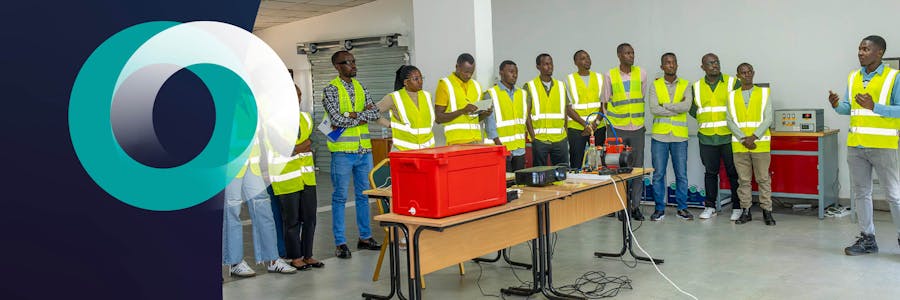
Introduction
The Africa Centre of Excellence for Sustainable Cooling and Cold Chain (ACES) invites applications for the Refrigerants: Selection, Safety & Environmental Impact Course.
This one-day intensive training is designed to build essential understanding of refrigerant types, their properties, safety classifications, and the environmental implications of their use—equipping participants to make informed and responsible choices in refrigeration and air conditioning (RAC) applications.
1 Day Workshop
In-Person
[email protected]
Joseph Hakuzimana
Programme Dates
No Dates Scheduled
Course Fees
Course Description
As global regulations tighten and the push toward climate-friendly cooling solutions intensifies, understanding refrigerants is no longer optional - it is a critical professional competence. This course offers a comprehensive overview of conventional, natural, and emerging refrigerants, with particular attention to their thermodynamic performance, flammability, toxicity, global warming potential (GWP), and ozone depletion potential (ODP).
Participants will explore how to match refrigerant properties with application requirements, navigate international safety and environmental standards (such as ASHRAE 34, ISO 817, and Kigali Amendment commitments), and adopt best practices for leak prevention, recovery, and disposal. Whether working with hydrofluorocarbons (HFCs), hydrocarbons, ammonia, CO₂, or emerging low-GWP blends, this course prepares you to make choices that are technically sound, regulatory compliant, and environmentally responsible.
Through interactive presentations, group discussions, and scenario-based problem solving, participants will gain the knowledge and tools to manage refrigerant selection and use with greater safety, efficiency, and sustainability.
Who Should Apply?
This course is ideal for individuals working with or responsible for refrigeration systems, including:
- Refrigeration and HVAC technicians
- Cold room and commercial refrigeration operators
- Refrigeration facility managers
- Refrigeration project engineers and system designers
- Environmental officers and sustainability consultants
- Technical trainers and vocational educators
- Entrepreneurs in cold chain and climate technology sectors
Syllabus Outline
The Refrigerants: selection, safety & environmental impact course will cover the following key topics:
Theory overview: Refrigerants, classifications & applications
• What are refrigerants: definitions, categories (synthetic vs. natural)
• Thermodynamic roles of refrigerants in cooling cycles
• Refrigerant properties: pressure, boiling point, capacity, glide
• Application-specific refrigerants: commercial, transport, domestic, industrial
Environmental impact of refrigerants
• Ozone Depletion Potential (ODP) and Global Warming Potential (GWP)
• Environmental regulations: Montreal Protocol, Kigali Amendment
• Impacts of refrigerant leakage
• Role of refrigerants in climate change and sustainability goals
Risk classification
• Refrigerant toxicity and flammability: ASHRAE 34 and ISO 817 standards
• Understanding safety groups: A1 to B3 classifications
• Assessing risks for natural refrigerants (e.g., Ammonia, CO₂, Hydrocarbons)
Demonstration: Safety practices in handling refrigerants
• Correct use of recovery units and refrigerant cylinders
• Leak detection and containment procedures
• Proper labelling, signage, and refrigerant documentation
• Overview of PPE for various refrigerant types (including toxic/flammable gases)
Lifecycle Management & Compliance
• Refrigerant recovery, recycling, and destruction methods
• Leakage monitoring and record keeping
• Understanding refrigerant quotas, bans, and alternative refrigerant pathways
Wrap-up and Group Discussion
• Review of key concepts learned
• Q&A session with instructor
• Knowledge check or mini quiz
How To Apply
Applicants must submit a single PDF document containing the following:
- A cover letter addressed to the Academic Head, ACES, stating your motivation for attending the training
- A Curriculum Vitae (CV)
- Short responses (maximum 150 words each) to the following questions:
- What experience do you have with working with refrigerants?
- What specific refrigerant challenges do you hope to better understand through this course?
- Do you have any dietary requirements or mobility restrictions that you want us to be aware of? (This will be treated confidentially to support your attendance.)
Interested and qualified candidates should submit their applications online by the designated deadline to ACES through [email protected], with the subject line:
" Refrigerants: selection, safety & environmental impact Course – [Your Name]"
Join us in advancing your knowledge on refrigerants!